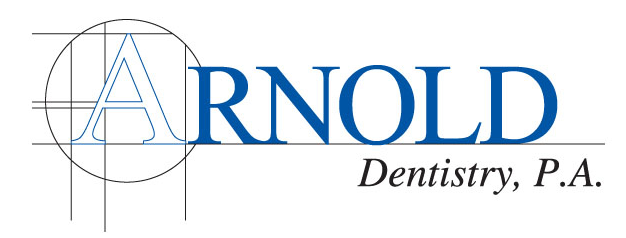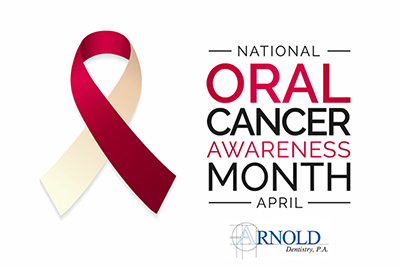April is Oral Cancer Awareness Month... Spread the Word!
Thu, Apr 4th, 2021
Did you know, April is Oral Cancer Awareness month? 2021 marks the 22nd year of this national campaign to promote screening in an attempt to end oral cancer. There are over 50,000 newly diagnosed cases each year and about 10,000 patients die annually from this disease. 40 percent of people who are diagnosed with oral cancer don't live longer than five years. Many people who do survive suffer severe facial disfigurement or find it very difficult to eat and speak. The death rate for oral cancer is particularly high because oftentimes oral cancer is discovered late in its development.
In this blog, we'll discuss common signs of oral cancer along with preventative measures you can take to reduce your chances of being diagnosed with this disease.
Signs of Oral Cancer
Signs and symptoms of oral cancer caused by tobacco usage and/or excessive alcohol usage may include one or more of the following:
- Any sore or ulceration that does not heal within 14 days.
- A red, white, or black discoloration of the soft tissues of the mouth.
- Any abnormality that bleeds easily when touched.
- A lump or hard spot in the tissue, usually border of the tongue.
- Tissue raised above that which surrounds it; a growth.
- A sore under a denture, which even after adjustment of the denture, does not heal.
- A lump or thickening that develops in the mouth.
- A painless, firm, fixated lump felt on the outside of the neck, that has been there for at least two weeks.
- All these symptoms have the commonality of being persistent and not resolving.
Signs and symptoms of HPV-caused oropharyngeal cancer persist longer than two-three weeks and may include one or more of the following:
- Hoarseness or sore throat that does not resolve.
- A painless, firm, fixated lump felt on the outside of the neck, which has been there for at least two weeks.
- Constant coughing that does not resolve.
- Difficulty swallowing; a sensation that food is getting caught in your throat.
- An earache on one side (unilateral) that persists for more than a few days.
- All of these symptoms have the commonality of being persistent and not resolving.
These can be detected during dental visits, but it's important to be vigilant between visits as well so they can be discovered early on.
If you are experiencing any of these symptoms and have immediate concerns, it's critical to schedule an appointment with a dentist.
How to Reduce Your Odds of Getting Oral Cancer
Preventative measures can be taken to reduce the risk of getting oral cancer:
- Quit smoking or tobacco use
- Cut back on alcohol consumption
- Go to your dental check-ups
- Wear sunscreen on your lips when you're in the sun
- Eat healthy, organic food
- Lower your risk of getting HPV (Human Papillomavirus). It can be sexually transmitted with a single encounter.
Some people have HPV in their mouth and are unaware of it because it doesn't cause any issues. But for others, it can lead to changes that cause cancer.
Of course, there's no sure-fire way to prevent oral cancer altogether. But these preventative measures can reduce the chances of you getting this disease.
Arnold Dentistry
During this Oral Cancer Awareness month, we strongly urge YOU to schedule an appointment with Arnold Dentistry to get your oral cancer screening. Or if you're experiencing any of the aforementioned signs above, please don't hesitate to call our office. Not only can an oral cancer screening exam potentially save your life, but it will give you peace of mind knowing that you took the necessary steps to remain safe and healthy!
(813) 689-1529
Sources: oral cancer foundation, bidmc






